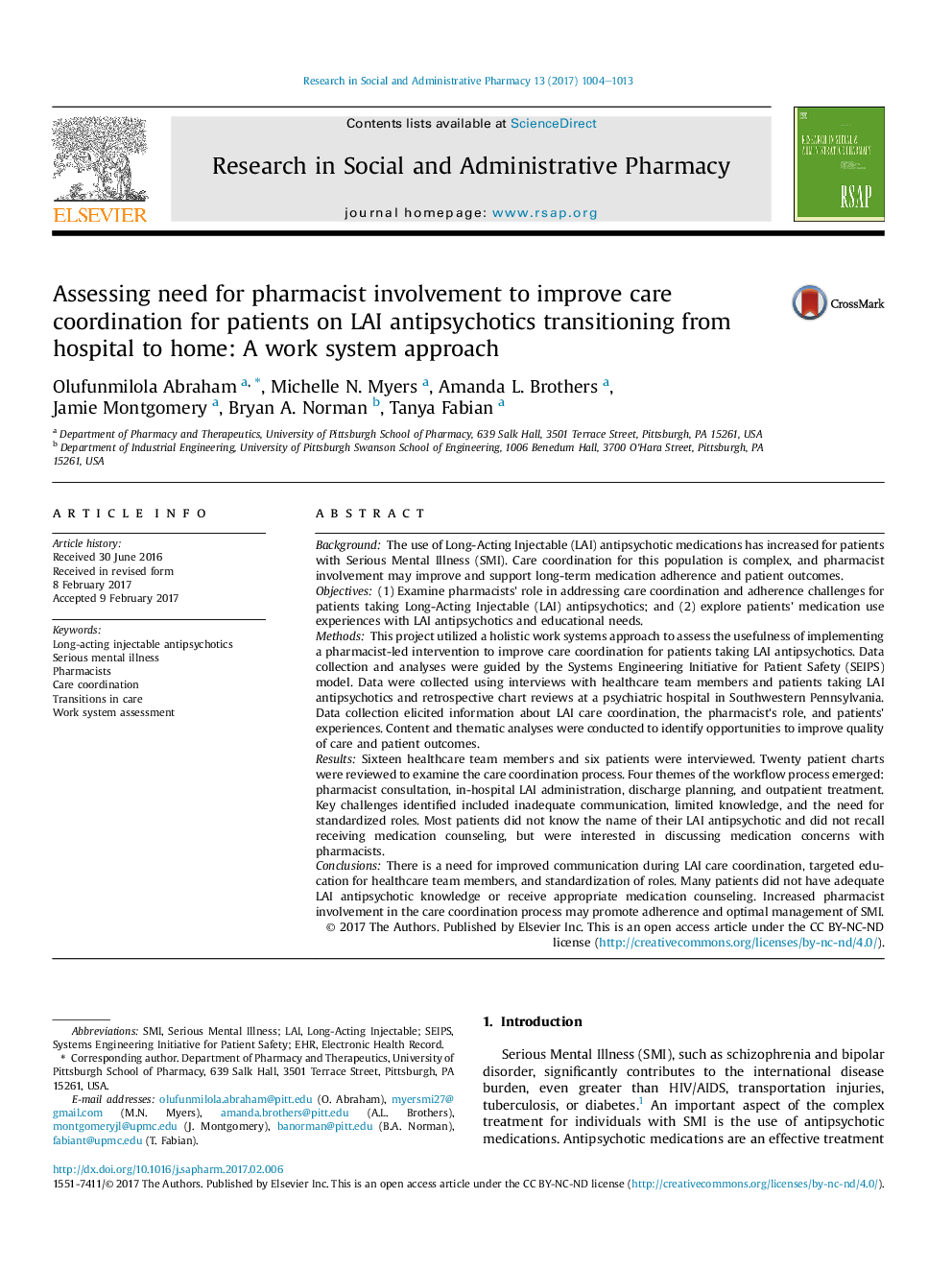| Article ID | Journal | Published Year | Pages | File Type |
|---|---|---|---|---|
| 5551177 | Research in Social and Administrative Pharmacy | 2017 | 10 Pages |
â¢This project assessed a pharmacist intervention to improve care coordination for patients on Long-Acting Injectable (LAI) antipsychotics.â¢Four themes emerged including pharmacist consultation, in-hospital injection administration, discharge, and outpatient treatment.â¢An expansion of pharmacists' role in LAI care coordination may reduce healthcare gaps through improved communication and medication counseling.
BackgroundThe use of Long-Acting Injectable (LAI) antipsychotic medications has increased for patients with Serious Mental Illness (SMI). Care coordination for this population is complex, and pharmacist involvement may improve and support long-term medication adherence and patient outcomes.Objectives(1) Examine pharmacists' role in addressing care coordination and adherence challenges for patients taking Long-Acting Injectable (LAI) antipsychotics; and (2) explore patients' medication use experiences with LAI antipsychotics and educational needs.MethodsThis project utilized a holistic work systems approach to assess the usefulness of implementing a pharmacist-led intervention to improve care coordination for patients taking LAI antipsychotics. Data collection and analyses were guided by the Systems Engineering Initiative for Patient Safety (SEIPS) model. Data were collected using interviews with healthcare team members and patients taking LAI antipsychotics and retrospective chart reviews at a psychiatric hospital in Southwestern Pennsylvania. Data collection elicited information about LAI care coordination, the pharmacist's role, and patients' experiences. Content and thematic analyses were conducted to identify opportunities to improve quality of care and patient outcomes.ResultsSixteen healthcare team members and six patients were interviewed. Twenty patient charts were reviewed to examine the care coordination process. Four themes of the workflow process emerged: pharmacist consultation, in-hospital LAI administration, discharge planning, and outpatient treatment. Key challenges identified included inadequate communication, limited knowledge, and the need for standardized roles. Most patients did not know the name of their LAI antipsychotic and did not recall receiving medication counseling, but were interested in discussing medication concerns with pharmacists.ConclusionsThere is a need for improved communication during LAI care coordination, targeted education for healthcare team members, and standardization of roles. Many patients did not have adequate LAI antipsychotic knowledge or receive appropriate medication counseling. Increased pharmacist involvement in the care coordination process may promote adherence and optimal management of SMI.
